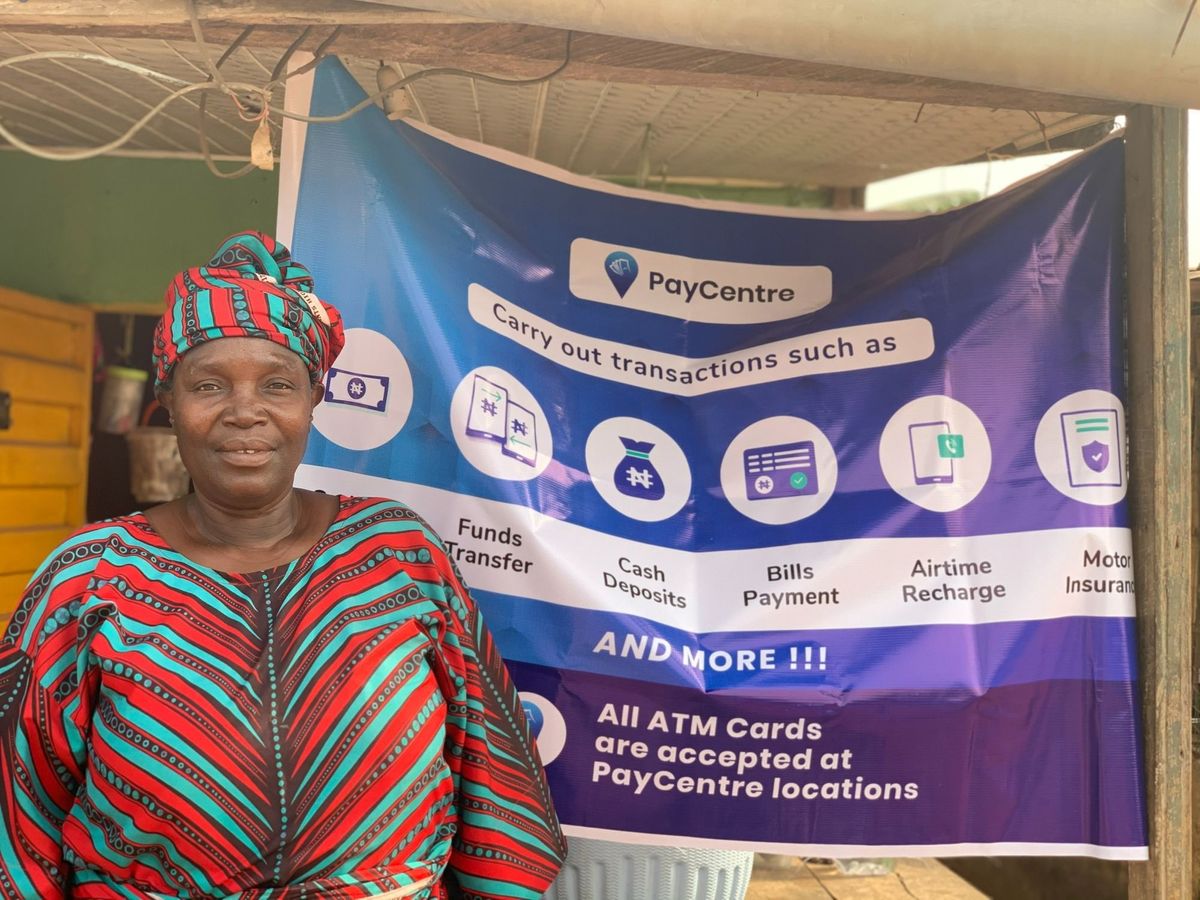Inside E-Settlement’s journey to becoming one of Nigeria’s biggest Agency bankers
"We want to hit 200,000 agent locations in the next few months," Olaoluwa Ajoodu, CEO of E-settlement

In August 2020, EFInA, a financial sector development organization, released a report on a survey of Financial Agents across Nigeria.
The report which examined many critical aspects of the Agent Banking sub-sector in Nigeria had some curious details. Perhaps, the most interesting was a list of the most popular agent banking services.
E-Settlement Limited (ESL) was listed as the fifth most popular service among the agents. For the 4-year-old agency banking company, this was a landmark moment.
For context on how important this position is, here are the other companies that made it into the top 5 in order
- Firstmonie, a subsidiary of FirstBank—Nigeria’s oldest commercial bank
- Paycom, a subsidiary of OPay—an Opera-backed and Chinese-owned fintech company that has raised $170 million+ to date
- Interswitch—One of Nigeria’s biggest fintech infrastructure providers; recently raised $200 million from Visa and is valued at over $1 billion.
- MTN—The country’s biggest mobile network provider.
E-Settlement has won a seat at the table with these big guns despite raising only $1.1 million from private investors, and that was before the company was officially formed. ESL was created as the parent company to CashEnvoy, PayCentre, and PayPad—solutions previously owned by Olaoluwa Awojoodu, the CEO.
Customer focus: the secret sauce of E-settlement’s success
For Olaoluwa, climbing the ladder of dominance has been a product of resourcefulness and prudence. “We did not allow not having enough money stop us from doing what we set out to do. Whenever we were cash-strapped for something, we always found creative ways to structure deals. We were also focused on pulling back every resource for growth”, he said.
Paying attention to customer’s needs and making life better for them was also crucial. CEO Olaoluwa told benjamindada.com that ESL’s PayCentre was the first to introduce instant settlement in the industry. “Before we introduced instant settlement, the normal thing was for agents to do a transaction and get money the next day. We switched to instant settlement because we discovered that the agents needed the money instantly.”
They didn’t stop there either. According to Wuraola Abulatan, the Communications Lead at ESL, the company was also the first agency bank to introduce dispute resolution to their customers.
Speaking on the company’s dispute resolution program, Wuraola said, “Innovation is really key for us. Wherever customers had debit errors, they had to go to the bank to fill dispense error forms, which would take about three weeks to rectify. And these customers were with us in the first place because they didn’t want to go to the banks. So, what we did was to introduce next-day dispute resolution.”
“Once the dispute has been resolved, we inform both the agent and the customer. In cases where we’re not able to solve the disputes, we refer the parties to the bank. However, with our dispute resolution system, we have been able to resolve over 90% of our disputes,” she added.
The company also organizes routine book-keeping training for its agents to help them with reconciling their books and growing. Some training sessions have also been dedicated to teaching these agents how the banking system works and the important parties in it.

Compared to its peers, E-settlement had fewer resources and had to innovate around the solutions it was trying to proffer. “We were able to do all these via aggressive partnerships with banks and other Fintechs. When you don’t have money, you need a resilient nature to make it work,” said Olaoluwa.
E-settlement’s performance in 2020
Over the years, the company has built a network of over 60,000 agents and has a presence in all 774 local governments in the country. According to Olaoluwa, ESL has, through its agents, serviced over one million individuals.
In 2020 alone ESL’s PayCentre recorded $1.7 billion (approx. ₦660 billion) worth of transactions, up 338% from 2019. They accomplished this feat in 66 million transactions. Meaning that the company’s average transaction value was approximately ₦10,000.
Much of its success has been down to its effectiveness at keeping its operations lean. Per its end-of-year performance reports, ESL is currently a profitable venture—a rarity in today’s “growth first, revenue later” venture capital ecosystem.
Olaoluwa admits that building a cash-efficient business in the current economic climate hasn’t been easy. The company has had to be very strategic about its expansion, ploughing back profit into the business to cover more ground.
Challenges in agency banking
The company has had its share of challenges, some of them ubiquitous across the industry. “Two challenges we have faced are literacy level and transactional issues,” Olaoluwa said over a call to benjamindada.com.

“On one hand, it is complicated to get people to understand simple aspects of financial technology e.g. not receiving an SMS alert doesn’t mean there is no money in your bank. On the other hand, sometimes transactions fail due to issues with infrastructure providers and you have to deal with customers whose problems you can’t fix”, he adds.
These challenges are not unique to any player in the ecosystem. The current financial system makes it near impossible for players to operate without reliance on traditional banks and legacy infrastructure providers.
However, E-Settlement is prepared to work towards solutions for these problems. While transaction failures might be out of control for the company, Olaoluwa says it is committed to the continual education of its customers.
CBN’s role in promoting competition in agency banking
On agent loyalty, which is often regarded as a pressing challenge for agency banking companies, Olaoluwa prefers to think of it as a feature and not a bug.
In the CBN’s Guidelines for the Regulation of Agent Banking and Agent Banking Relationships, the regulatory body bans exclusivity contracts between agents and financial institutions.
The section reads as follows:
- There shall be no exclusivity of agent banking contracts between financial institutions and agents.
- An agent may provide agent-banking services to as many financial institutions as it can accommodate at any given time.
- The capacity of the agent to accommodate more financial institutions shall be determined by the additional/incoming financial institution.
According to Olaoluwa, the contract guidelines help to prevent monopoly in the sector, which is great for competition. It also allows agents to use multiple agent banking services depending on service and availability.
“There are two categories of agents: those who get a POS (device) as an additional service to their business and those who run a cash-in cash-out (CICO) center as a full business. For the former, they may not need to have multiple service providers. However, the people who run CICO centers need multiple providers in case of down times”.
Future plans for E-Settlement
After gaining a significant foothold in the agent banking ecosystem, ESL is looking to expand its operations. The company wants to deepen its agency service across the country. Most parts of the country are still underserved by the current banking system.
“In Nigeria, we have less than 6,000 banks, with more than half in Lagos. In many other states, banks are spread so thin that people have to travel to access these services. We want to deepen financial inclusion by creating more PayCentre agent networks in under-served states”, says ESL’s CEO, Olaoluwa Awojoodu.
He ascertained that work is underway in certain parts of the country, especially the north to grow a stronger agent network. “We want to hit 200,000 PayCentre agent locations within the next few months,” he said.
The company has also set its sights on expanding to other African countries. Financial inclusion is a problem across most of sub-Saharan Africa and Nigeria’s template may very well prove to be the solution for other nations. Olaoluwa hinted to Benjamindada.com that the company was looking to have a presence in at least 5 countries before the end of 2021.
While those initiatives are underway, ESL is also committing itself to improve the welfare of its agent. The company hopes to introduce new initiatives for agents that patronize it to drive dedication to its service. Insurance and agent-loan plans are in the pipeline and have been piloted with a full roll-out scheduled for the following months.
“Our agents are part of our infrastructure. We want to grow the customer side of the business and build relationships with both the agents and the customers in the near future.” concludes Olaoluwa.
For all the work done by E-settlement and other agency banking companies, there is still a lot more to be done. 60% of African adults remain unbanked. The future of banking the unbanked will belong to companies that can innovate to solve customer-specific challenges. If past success is anything to go by, E-settlement’s grit and innovative track record place the company in a strong position to lead the future of agency banking.







Comments ()